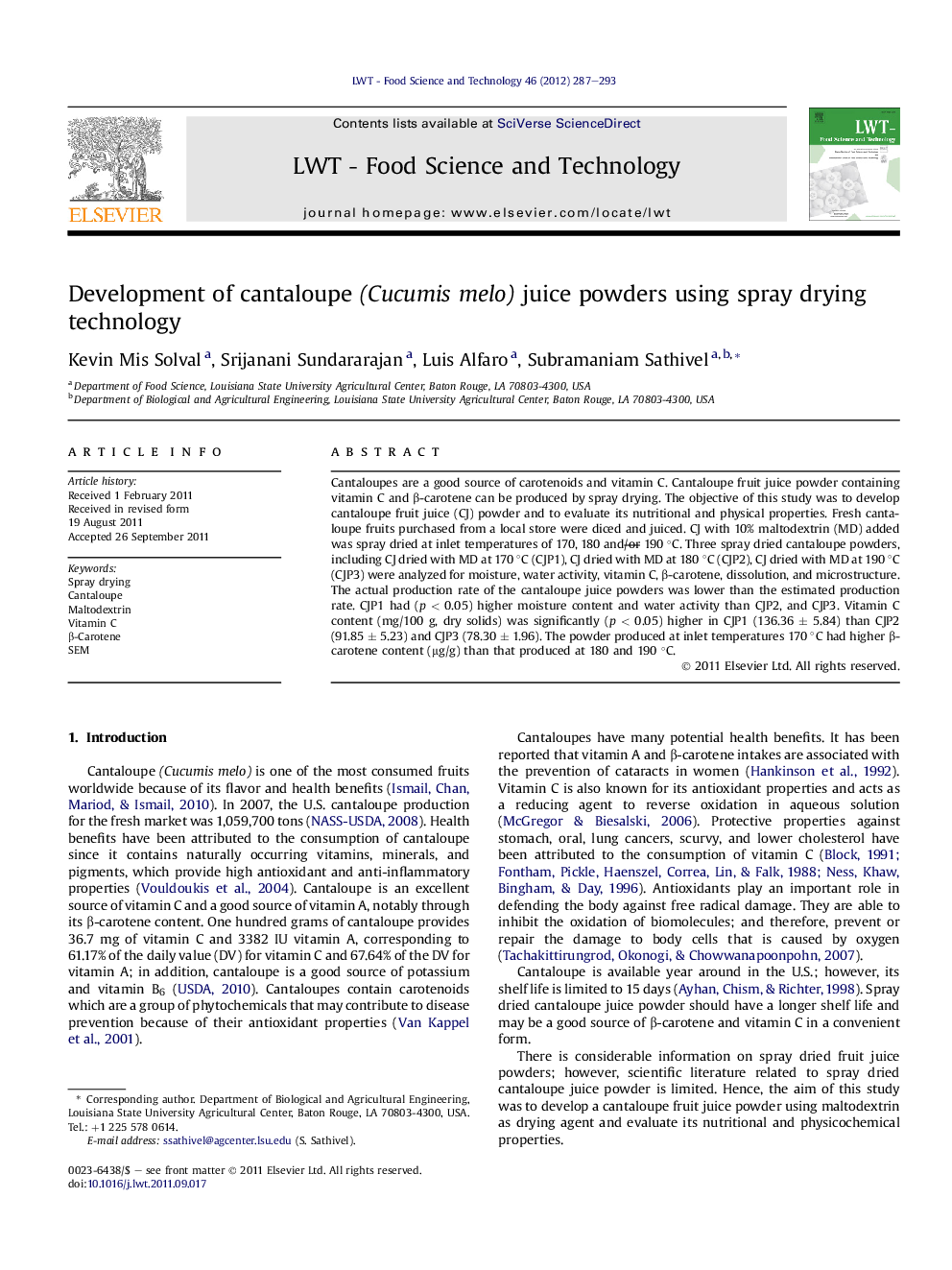| Article ID | Journal | Published Year | Pages | File Type |
|---|---|---|---|---|
| 6405437 | LWT - Food Science and Technology | 2012 | 7 Pages |
Cantaloupes are a good source of carotenoids and vitamin C. Cantaloupe fruit juice powder containing vitamin C and β-carotene can be produced by spray drying. The objective of this study was to develop cantaloupe fruit juice (CJ) powder and to evaluate its nutritional and physical properties. Fresh cantaloupe fruits purchased from a local store were diced and juiced. CJ with 10% maltodextrin (MD) added was spray dried at inlet temperatures of 170, 180 and/or 190 °C. Three spray dried cantaloupe powders, including CJ dried with MD at 170 °C (CJP1), CJ dried with MD at 180 °C (CJP2), CJ dried with MD at 190 °C (CJP3) were analyzed for moisture, water activity, vitamin C, β-carotene, dissolution, and microstructure. The actual production rate of the cantaloupe juice powders was lower than the estimated production rate. CJP1 had (p < 0.05) higher moisture content and water activity than CJP2, and CJP3. Vitamin C content (mg/100 g, dry solids) was significantly (p < 0.05) higher in CJP1 (136.36 ± 5.84) than CJP2 (91.85 ± 5.23) and CJP3 (78.30 ± 1.96). The powder produced at inlet temperatures 170 °C had higher β-carotene content (μg/g) than that produced at 180 and 190 °C.
⺠Cantaloupe juice powder can be effectively produced using maltodextrin drying agent. ⺠The inlet air temperature of the spray dryer can affect vitamin C and β-carotene contents of cantaloupe juice powders. ⺠This study also identifies opportunities for development of cantaloupe juice powders from cantaloupe fruit.
